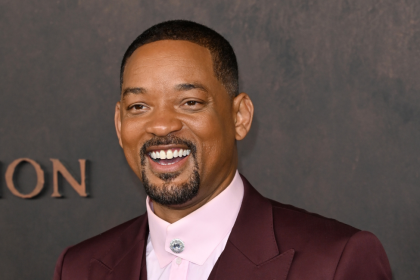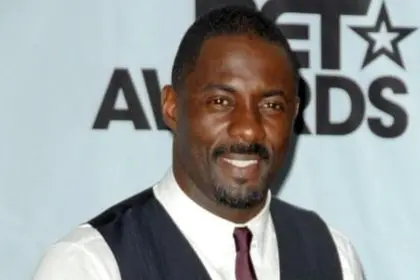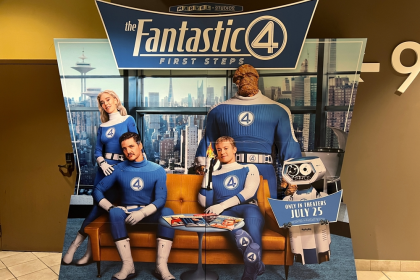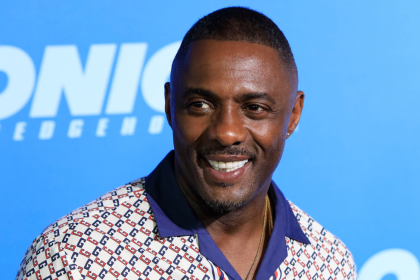Imagine being offered the keys to not one, not two, but three of the most iconic movies in recent Hollywood history, and then walking away from all of them. That’s exactly what happened to Will Smith, one of the biggest stars in entertainment, and the regret is still eating him alive years later.
During a recent radio interview, a major Hollywood revelation dropped that has movie fans everywhere doing double takes. Smith’s confession was so raw and honest that it felt like watching someone finally admit to a mistake that’s been haunting them for years. And honestly, after hearing the full story, you might find yourself questioning every major decision you’ve ever made in your own life.
The Inception rejection that started a pattern of regret
Here’s where the story gets absolutely wild. Christopher Nolan, the mastermind behind some of cinema’s most complex and successful films, walked into a room and offered the lead role in Inception to Smith, someone who has become known for making some pretty questionable career choices. The response? A polite but definitive no, because the plot was just too confusing to understand.
Can you imagine being in that position? One of the most respected directors in Hollywood hands you what would become an $839 million worldwide blockbuster, and your reaction is essentially saying thanks but no thanks because the concept went right over your head.
This wasn’t even Nolan’s first choice for the role, which makes the rejection even more interesting from a Hollywood politics perspective. Brad Pitt was actually the director’s initial preference, but when that didn’t work out, the opportunity landed elsewhere. Instead of Smith seizing what could have been a career-defining moment, the role eventually went to Leonardo DiCaprio, who turned it into one of his biggest hits.
The painful irony is that movies involving alternate realities and complex storylines don’t pitch well in Hollywood meetings, but they often become the films that audiences remember decades later. Sometimes the projects that sound the most confusing in a conference room end up being the ones that capture imaginations worldwide.
The Matrix mistake that hurts too much to discuss
If turning down Inception was painful, then rejecting The Matrix was apparently excruciating on a completely different level. This rejection has become the stuff of Hollywood legend, representing one of those sliding door moments where a single decision changed the trajectory of multiple careers.
The role of Neo eventually went to Keanu Reeves, transforming him into an action icon and launching one of the most successful sci-fi franchises in movie history. Meanwhile, the person who walked away from the opportunity has had to watch from the sidelines as someone else became synonymous with bullet-time sequences and philosophical questions about reality.
The rejection apparently came down to a disconnect with the Wachowski siblings’ pitch presentation. Instead of focusing on the story itself, the directors emphasized their innovative visual techniques and camera work. Imagine you’re sitting in a meeting where someone is trying to explain revolutionary filmmaking techniques that don’t exist yet, using words like “imagine if you could stop jumping in the middle of the jump while people see around you 360 degrees.”
Without the visual reference points we have today, that kind of pitch probably sounded like science fiction gibberish rather than the groundbreaking cinema it would become. The lesson here might be that sometimes the most revolutionary ideas sound the most ridiculous when you first hear them explained.
Django Unchained and the vision clash that couldn’t be resolved
The third major rejection in this trilogy of career regrets involved Quentin Tarantino and Django Unchained, but this one had a completely different dynamic. Unlike the confusion surrounding Inception or The Matrix, this decision came down to creative differences about the story’s emotional core.
Tarantino’s vision was focused on vengeance and retribution, creating a powerful narrative about justified revenge in the context of America’s slavery history. However, the actor who was offered the role wanted something fundamentally different — a love story at its heart rather than a tale of violent payback.
The basic plot had everything that should have made for an irresistible project: A man learning to fight and kill to rescue his wife who had been enslaved represents one of the most compelling storylines imaginable. But when the director and the potential star couldn’t align on whether love or vengeance should drive the narrative, the collaboration fell apart.
Jamie Foxx ultimately stepped into the title role and delivered a performance that perfectly matched Tarantino’s vision. The film became both a critical success and a cultural touchstone, while the person who walked away had to add another missed opportunity to their growing list of what-ifs.
The psychology behind turning down guaranteed hits
What’s fascinating about these three rejections is how they reveal the impossible position actors find themselves in when evaluating potential projects. You’re essentially being asked to commit months or years of your life to something based on a script, a pitch meeting, and your gut instinct about whether the final product will resonate with audiences.
Think about it from a practical perspective, how many times have you read a movie description that sounded weird or confusing, only to discover later that it became a beloved classic? The entertainment industry is littered with projects that seemed like sure failures during development but ended up changing cinema history.
The challenge becomes even more complex when you’re an established star with a brand and reputation to protect. Taking on experimental or unconventional projects represents a calculated risk that could either elevate your career to new heights or damage your box office appeal if audiences don’t connect with the material.
Directors often have multiple actors in mind for key roles, and the final casting sometimes comes down to scheduling conflicts, salary negotiations, or simply who responds most enthusiastically to the material during the pitch process.
The fact that two major stars passed on Inception before DiCaprio signed on suggests that the concept really was challenging to grasp during the development phase. It takes a certain kind of actor to read a script about dreams within dreams and immediately visualize how that could translate into compelling cinema.
Learning from Hollywood’s biggest what-if scenarios
These rejection stories serve as fascinating case studies in decision-making under uncertainty. Every actor, director, and producer in Hollywood has similar tales of projects they passed on that later became massive successes, or films they committed to that ended up being career disasters.
The entertainment industry operates on incomplete information and educated guesses about audience preferences. Scripts change during production, directors alter their vision during filming, and marketing campaigns can completely transform how audiences perceive a finished movie.
What makes these particular rejections so painful is that all three films, Inception, The Matrix, and Django Unchained, became not just commercial successes but cultural phenomena that continue to influence filmmaking and popular culture years after their release.
The lasting impact of career crossroads moments
The honest admission about these missed opportunities reveals something deeper about success and regret in high-stakes careers. Even when you achieve massive success in your chosen field, the roads not taken can continue to haunt you decades later.
These stories also highlight how different actors bring different strengths to roles. DiCaprio’s analytical approach worked perfectly for Inception’s complex narrative structure. Reeves’s stoic intensity became inseparable from Neo’s character development. Foxx’s dramatic range allowed him to navigate Django’s emotional journey from slavery to empowerment.
Perhaps the most valuable lesson from these Hollywood what-if scenarios is that sometimes the projects that sound the most challenging or confusing during the pitch phase end up being the ones that push cinema forward and create lasting cultural impact. The next time someone offers you an opportunity that seems too weird or complicated to understand, it might be worth taking a second look.


















